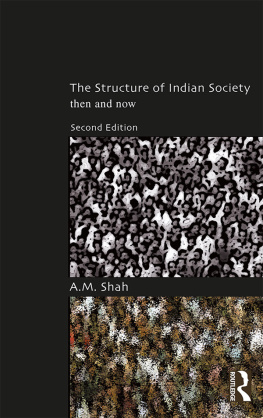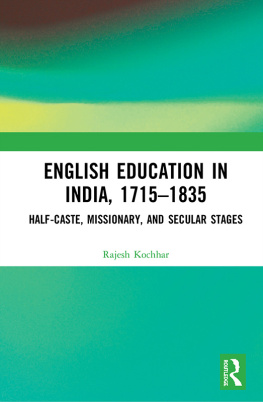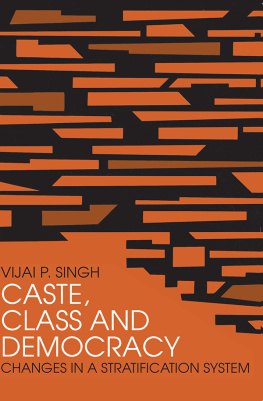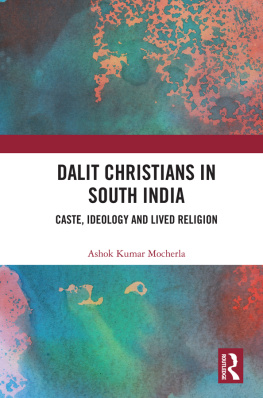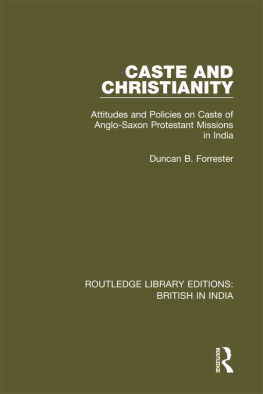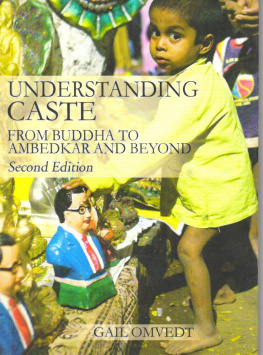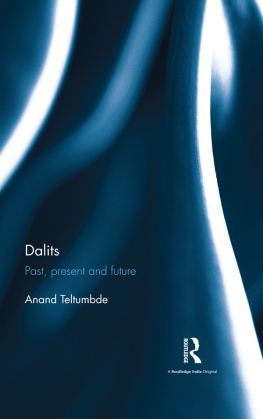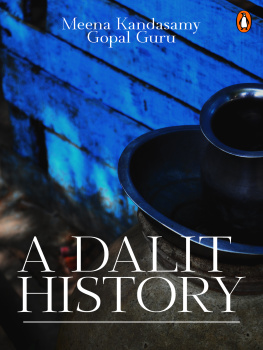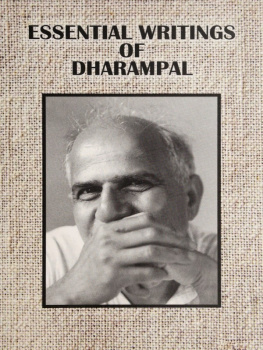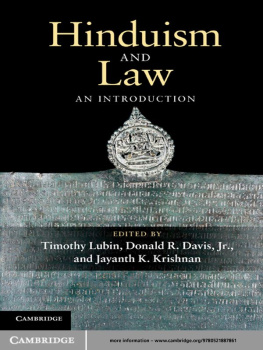Key Concepts in Modern Indian Studies
Key Concepts
in
Modern Indian Studies
Edited by
Gita Dharampal-Frick
Monika Kirloskar-Steinbach
Rachel Dwyer
Jahnavi Phalkey

NEW YORK UNIVERSITY PRESS
Washington Square
New York, NY 10003
www.nyupress.org
2015 by New York University
All rights reserved
Co-published with Oxford University Press, India.
References to Internet websites (URLs) were accurate at the time of writing. Neither the author nor New York University Press is responsible for URLs that may have expired or changed since the manuscript was prepared.
For Library of Congress Cataloging-in-Publication data, please contact the Library of Congress.
ISBN: 978-1-4798-0601-0
For sale in North America only
Manufactured in India by Rakmo Press, New Delhi 110 020
10 9 8 7 6 5 4 3 2 1
Also available as an ebook
Contents
Introduction
During the last couple of decades, modern Indian studies have become a site for new, creative, and thought-provoking debates extending over a broad canvas of crucial issues. Conceptually and historically grounded interrogationswith far-reaching philosophical, cultural, political, and sociological implications pertaining to developments in the subcontinent over the past two centurieshave defined the content of academic seminars and university teaching syllabi; likewise, international conferences have provided the arena for stimulating discussions on these issues. Concrete exemplification of this discursive interest in modern Indian studies is to be found in the in-depth studies that abound in this burgeoning field. Yet, surprisingly, an easy-to-access reference volume on the terminology that populates cultural studies and the social sciences relating to India remains a desideratum. Hence, in compiling this volume on key concepts in modern Indian studies, our primary aim is to contribute in some small way towards filling this unfortunate lacuna. Second, in recruiting a select number of internationally recognized experts to write individual entries on concepts central to their respective fields of specialization, our avowed intention is to introduce both students and interested general readers to scholars whose work has defined or refined the meaning of these terms. With this two-pronged agenda, Key Concepts in Modern Indian Studies hopes to provide some tangible entry points to modern Indian studies, in general, and to highlight some crucial issues and debates, in particular.
Given the diverse and complex range of this multidisciplinary field, our volume, needless to say, does not aspire to be more than an initial, modest attempt at bringing together ideas, issues, and debates salient to modern Indian studies. Constituting a kind of conceptual toolkit, its purpose is to serve as a handy resource guide to familiarize the reader with a whole gamut of questions defining not only academic concerns but also underscoring the social, cultural, political, and economic processes at work in the subcontinent during the last two hundred years. An underlying ambition of our pioneering venture is that it will pave the way for more extensive and intensive interest in specific debates, issues, and ideas that characterize modern India and render its study so stimulating.
This, in short, is the raison dtre of the present volume. Comprising an editorial quartet trained in four complementary academic disciplines (social and intellectual history, philosophy, cultural and media studies, and the history of science), we opted for a broad multidisciplinary approach. In deciding on a selection of over one hundred key concepts, we endeavoured to cast our net as expansively as possible to take into consideration the panoply of the subcontinents shared vocabulary, which, in turn, exemplifies the vast array of shared experiences of its peoples. Yet, to endow this conceptually variegated landscape with distinct contours, we depended on the contributions of scholars whose expertise was called for to underscore in a lucid, concise mannerfocusing on their allotted key conceptthe versatility of the shared conceptual syntax. Not wanting to constrain the individual authors creative lan, only a minimal set of criteria was stipulated for structuring the respective entry (namely, to posit a concise definition of the key concept, accompanied by a critical analysis of its trajectory and a succinct discussion of its significance in the academic arena as well as in the public sphere; to provide indispensable references and list a maximum of five key texts for further reading; and, lastly, to abide by a suggested word limit). That not all authors complied with these suggestionsor only tangentiallyis not per se problematic. Rather the non-uniformity of the individual entries is indicative of the respective authors differing research methodologies. This explains their varying degree of emphasis either on theoretical issues or on empirical data. Whatever be the case, these essays, constituting distinctive individual contributions of the respective scholar, offer the reader glimpses of cherished research interests that make Indian studies come alive. Needless to say, exercising our prerogative as editors, we did negotiate certain textual revisions. However, we have allowed unconventional presentations to hold swayintent as we are on displaying as wide a spectrum of academic ingenuity as possible. Indeed, the multifarious diversity of scholarly production heightens its attractiveness and accessibility, especially for a student readership.
A few more clarificatory words about our own agenda would help obviate misconceptions. Our volume is not intended to deliver a focused, neat, and tight exposition of conceptual categories. Nor did we wantthrough these conceptsto merely document changes brought about since the onset of modernity in India. Rather, we were concerned with underscoring the historical trajectory of a select number of key concepts themselves. More precisely, we considered it of epistemic value to show howas a result of sociopolitical transformations, in particular at the interstices of colonialism and postcolonialismcertain concepts (such as Ahimsa, Caste, Darshan, and Race, just to name a few prominent ones) have, during the last two centuries, taken on different meanings. This being the case, seeking fixed definitions or stable meanings, therefore, seemed a pointless exercise. Furthermore, we would like to stress that in discussing or delineating the trajectory of a key concept, there is no wrong or correct way per se. Viewed from this perspective, some of our authors seemingly idiosyncratic delineations of specific key concepts reflect just one instance of the differing ways in which the phenomena can beand have beenperceived or interpreted during the past, and this multiperspective tendency has perhaps intensified in the contemporary period. Testifying to the constant interplay between theory and practice in the field of modern Indian studies, this heuristic device is employed quite ingeniouslyalbeit inadvertentlyby many of the entries in this volume. While some demonstrate how concepts impinge upon practices, and develop, shape, as well as make inroads into geographical regions, thereby encroaching upon their inhabitants, other entries, contrastively, discuss how practices and their agents for their part challenge and change given conceptual frameworks.
Thus, our task was to collate an assemblage of different conceptual narratives, representing an array of different readings of sociocultural experience. In doing this, we, as editors, would like to not only sensitize the reader to the vibrancy of academic discussions but also draw attention to inherent contestations and tensions riddling scholarly interpretations. Far from diminishing the relevance of individual expositions, such discursive contentions enhance the crucial significance of academic debate, mirroring as the latter does similar contestations in the public sphere. Moreover, while taking into account the shaping and reshaping of key concepts, we have become all the more acutely aware of the many omissions in this present volume. Accordingly, we would appreciate receiving critical comments and suggestions as to crucial additional concepts for future editions; simultaneously, we wish to stress the urgent need for further concerted research in this dynamic field.
Next page

